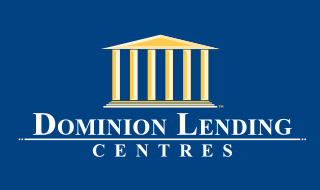| |
| C:UsersToshibaDesktopDSCN0716.jpg |
|
|
| |
Colin Dawes
Dominion Lending Centres Interest Advantage
|
Phone: 604-556-6718
Fax: 888-845-4871 |
| |
|
|
|
|
|
|
|
|
Hi Brenda
|
|
Welcome to the March issue of my monthly newsletter!
|
 |
|
This month’s edition looks at the differences between lenders and the battle between variable vs fixed rate mortgages. Please let me know if you have any questions or feedback regarding anything outlined below.
Thanks again for your continued support and referrals!
 |
|
|
| |
Should you go fixed or go variable?
 |
|
 |
|
| |
|
It’s the first and only thing anyone usually asks when you talk about your mortgage: What’s your rate? While everyone can recall their rate off the top of their head, it’s the only detail of the mortgage they remember or care to know. Though the rate is obviously important, your mortgage is so much more than a rate, and if you’re not paying close attention, it can cost you money.
Before we dive deeper, let’s talk fixed rate vs. a variable rate and which one is better. Well, that all depends. First-time homebuyers and older homebuyers typically love the stability of a fixed rate. Keep in mind, seven-in-ten fixed mortgages are broken before the term ends. A fixed rate for five years is fine as long as you stick with a lender that’s going to calculate the penalty if you break your mortgage on the contract rate versus the Benchmark rate. That’s because the Benchmark rate, or as it’s sometimes called the Bank of Canada rate, is higher than your contract rate. Typically a credit union or monoline is the right choice for this mortgage.
Variable rates are great with any lender as it just comes down to who offers the best discounted variable rate. There’s a pretty simple way to decide whether a variable or fixed makes sense, based on rate alone. It’s called the 50-basis point rule. Basically, take the best fixed rate out there
|
|
|
|
and the best variable rate out there and subtract the two. If the number is less than 50 basis points, there is strong argument to go for a fixed rate. However, if the difference is more than 50 basis points, there’s a solid case to go with a variable.
Pretty simple right? What’s not as simple is the personality of your mortgage. It may not seem like it, but yes, your mortgage has a personality. Think of it like a shiny sports car. It may look amazing when it rolls off the lot, but as the years go on, does it meet your daily needs? Besides your mortgage rate, you need to consider portability, and whether it can be blended and extended and how penalties for breaking the mortgage are calculated. When people start looking for a mortgage, they’re usually getting advice from friends or their parents, and the only question they’re asking is, what’s the rate? But if they don’t know the details of the mortgage like the ones listed above, you can tell them to stick their head in the sand, because they’re giving you bad advice. And if a mortgage broker is only fixated on the rate, you’re working with the wrong one.
Life happens and our circumstances change. You really want to make sure the mortgage will work for you in the future before you sign on the dotted line.
|
|
|
| |
 |
|
| |
Get to know your lenders
 |
|
 |
|
| |
|
One of the biggest aspects of a mortgage is figuring out the best lender. Since every file is unique, a good mortgage broker will likely tell you there’s no “best” lender. Instead, it will be those unique qualities in your mortgage that will determine which lender you’re going to use.
In a typical mortgage, there are three potential types of lenders: the big banks, credit unions and monolines.
A Bank
A bank is a financial institution that accepts deposits, lends money and transfers funds. They are listed as public, licensed corporations and have declared earnings that are paid to stockholders. A key point: they are regulated by the federal government-Office of the Superintendent of Financial Institutions. Everyone knows the big banks and they are considered to be trusted. If you decide to use a fixed-rate mortgage from a big bank, keep in mind the penalty to break the mortgage will be larger than other lenders. The big banks are best for a variable rate, since the penalty will be smaller.
Credit Unions
Credit unions also deposit, lend and transfer funds. However, after that, we run into some differences between the two. Credit Unions have an elected Board of Directors that consist of elected members from their community. They are local and community-based organizations and unlike the banks, they are not federally but provincially regulated.
|
|
|
|
The advantage to a credit union is they are not subject to the recent stress test rules announced for uninsured mortgages, so they can still service debt under the older rules. The credit unions calculation for penalties are typically friendlier to the borrower and if there are credit issues, they tend to be more understanding than the big banks.
Monolines
Monolines specialize in a single type of financial service, such as consumer credit, home mortgages, or a sole class of insurance. While monolines are often used by mortgage brokers because they are broker friendly, there are some advantages to the consumer. Monolines usually offer better discounted rates, while how they calculate the penalties can be friendly to the client. The biggest knock is they’re just not as well-known or trusted like a bank. It should be noted the major investors in monolines are the big banks, so there’s nothing really to fear.
Now that you know a little about the lenders, you need to know how a mortgage broker can help. A typical broker will have access to up to 90 lenders. That can be a real advantage, because if your mortgage isn’t fitting into the right box, a great broker will turn over every stone and work with the lenders to find a solution. And since a broker has a number of different lenders to choose from, they’ll understand each of the lender’s guidelines to get you the right mortgage.
|
|
|
| |
 |
|
| |
 |
|
Homeowner Tips
|
|
Burglary Prevention:
Whether you’re home or away on vacation, a few simple precautions can make your home less attractive to burglars. These include: Ensuring your outdoor lighting illuminates all entrances to your home; Cutting back shrubbery discourages burglars from hiding near window and doors; Keeping windows and doors locked at all times; Making certain your garage door is closed and locked; Installing a peephole in your front door; Securing windows and sliding glass doors with auxiliary locks (special door pins, available at home improvement stores, can prevent your sliding doors from being lifted from their tracks during a burglary attempt); Installing deadbolt locks on all exterior doors; and Never hiding or storing keys or tools outside.
|
|
|
| |
 |
|
About Dominion Lending Centres & DLC Leasing
 |
|
| |
 |
We are Canada's largest and fastest-growing mortgage brokerage! |
 |
We have more than 2,600 Mortgage Professionals from more than 350 locations across the country! |
 |
Our Mortgage Professionals are Experts in their field and many are ranked among the best nationally. |
 |
We work for you, not the lenders, so your best interests will always be our number one priority |
 |
We have more than 100 mortgage programs, making it easy to choose the best fit for your unique situation. |
 |
We close loans in all 10 provinces and 3 territories. |
 |
We can process your mortgage in as few as 7 days. |
 |
We are the preferred mortgage lender for several of Canada's top companies. |
 |
Dominion Lending Centres' Mortgage Professionals are available anytime, anywhere, evenings and weekends - and we'll even come to you! |
|
 |
| |
 |
The Home Buyers’ Plan (HBP) is a program for first-time homebuyers that allows you to withdraw funds from your RRSPs to buy or build a home. You can withdraw up to $25,000 tax-free ($50,000 for a couple). Your RRSP contributions must remain in the RRSP for at least 90 days before you can withdraw them under the HBP. Generally, you have to repay all withdrawals to your RRSPs within a period of no more than 15 years. You’ll have to repay an amount to your RRSPs each year until your HBP balance is zero. If you don’t repay the amount due for a year, it will have to be included in your income for that year.
|
|
|











